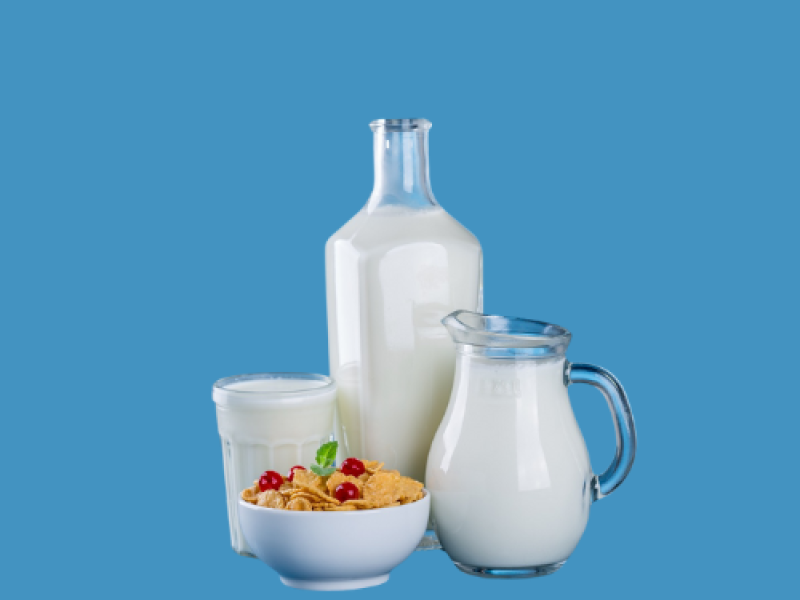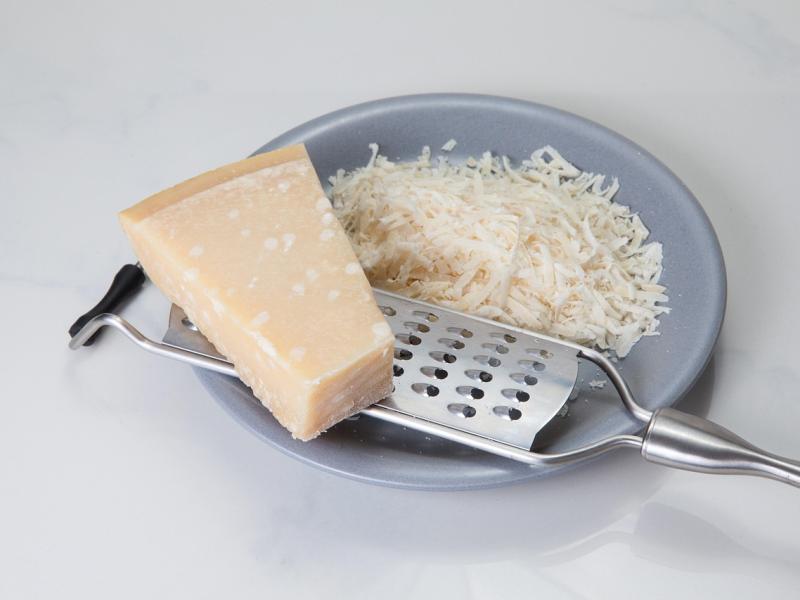The dairy aisle is all about calcium. Milk, cheese and yogurt are excellent sources of calcium, along with other nutrients like protein, potassium, and vitamins A and D. Calcium helps build and maintain strong bones, yet many people don’t get enough. Note, you’ll find foods like cream cheese, sour cream, and butter in the dairy department, but they are not part of the MyPlate Diary food group because they are low in calcium and high in fat.
Play the Dairy Game
Milk and Milk Alternatives
In the dairy section, you’ll find all kinds of milk, usually with different colored caps and labels. The different colors represent different percentages of fat. If you don’t drink dairy milk, there are lots of plant-based options, like soy, almond, or oat milk in the dairy aisle. If you are lactose intolerant, lactose-free milk can also be found in the dairy aisle.

Milk and Milk Alternatives: Know Before You Go
- Want less fat or calories? Go for skim or 1% milk. They all have the same amount of calcium, protein, potassium and vitamins A and D.
- Compare the nutrition labels on different dairy alternatives. They will have varying levels of protein, calcium, vitamin D, and other nutrients. Look for ones “fortified” with calcium.
- Check the nutrition label for added sugar in flavored milk and milk alternatives.
Yogurt
Greek, plain, flavored, fruit on the bottom, even chocolate cookie crunch. There is no shortage of variety in the yogurt aisle. Yogurt is packed with calcium, vitamin D and protein. It contains a natural sugar from milk called lactose, but some yogurts contain more added sugar than others, especially those marketed toward children. Yogurt makes a tasty snack and can also be used in many recipes including dips, marinades, sauces, casseroles, and desserts.
Find more information on yogurt and how to substitute yogurt in recipes on Extension’s Nutrition and Wellness blog.

Yogurt: Know Before You Go
- For a more filling snack, look for yogurt that is high in protein, such as Greek yogurt.
- Compare labels for added sugar content. It’s ok to choose flavored yogurt with some added sugar but remember to keep your percentage of “Added Sugar” to less than 10% as a general rule.
Plain yogurt is a great ingredient to keep on hand. You can use it as a substitution for sour cream in recipes. You can also mix it with some fruit and other toppings as an alternative to flavored yogurts with added sugars.
Consider buying larger tubs if your family eats a lot of yogurt—ounce for ounce, it’s usually cheaper.
Cheese
Cheese comes in blocks, shreds, slices, or cubes—and it’s a good source of calcium and protein. It can also be high in fat. Like milk, low-fat and fat-free cheese is lower in saturated fat but the amounts of other nutrients are similar.

Cheese: Know Before You Go
Try grating or slicing block cheese yourself at home. This can take a few extra minutes, but it is sometimes cheaper than buying it pre-shredded or pre-sliced.
Processed foods, like American cheese, are not “bad” or “good”. Most foods that we eat are processed in some way. Use the Nutrition Facts label to learn how the food fits in your MyPlate Plan – it can be higher in sodium and lower in other nutrients.




